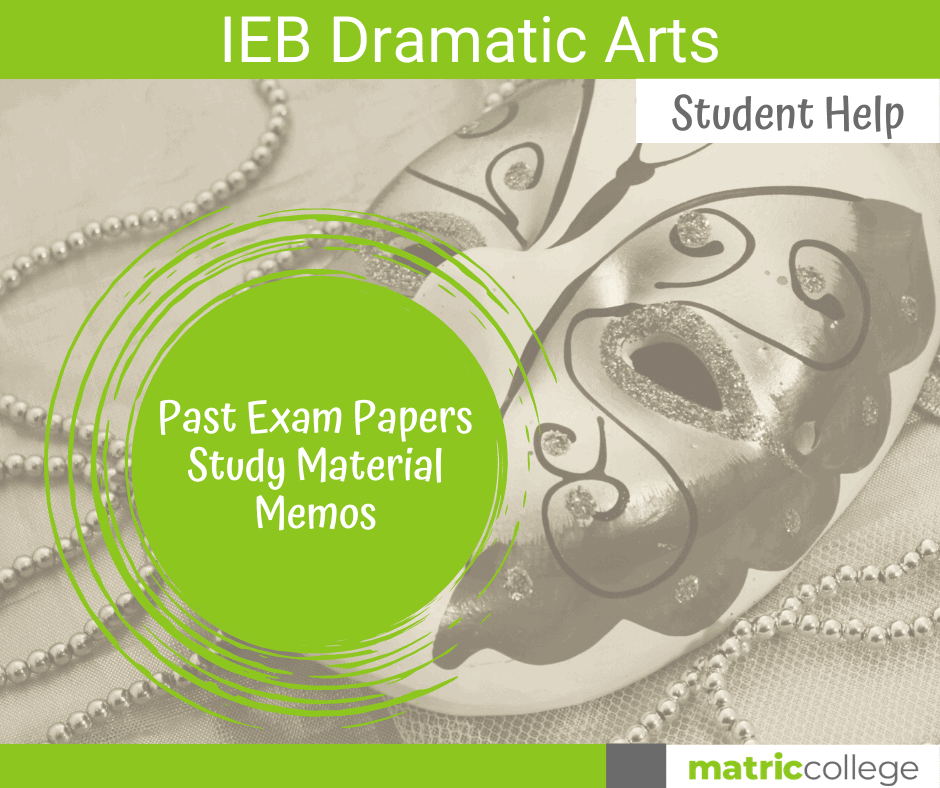IEB Dramatic Arts- Past Papers, Memos and Study Material
Date Published: October 21, 2020

IEB Dramatic Arts is a wonderful subject that is split into 2 examination processes. One is theoretical and the other being practical.
In terms of the theoretical examination, you’ll be asked short questions and essays in the same paper. So its rather imperative that you know your work!
Matric College has put together this cheat sheet to help you pass your Dramatic Arts exam with flying colours.
Past Papers
Past papers are a great way for you to practise your theoretical knowledge. You’ll encounter the theory in both short questions and applications questions that will help in giving you a deeper understanding of the work.
Past papers are also a great way to put your work into practise and see which sections you know and which need more work.
It’s always a good idea to practise past papers before your examination!
Here are the IEB Dramatic Arts past papers from 2017 -2019
Marking guidelines
Marking guidelines area great way to train yourself how to answer questions in the most efficient way possible. Many students find themselves running out of time during exams because they spend too much time answering questions that only require short and concise answers.
Marking guidelines are also a great way for you to learn how the markers are going to examine your essay questions. If you write your essays in the format given in the marking guidelines, you’re one step closer to acing the exam.
Here are the IEB Dramatic Arts Marking guidelines from 2017-2019
Tips and tricks for passing Dramatic Arts
With Matric College, you’re never on your own. That’s why we’ve put together the following tips and tricks for acing your IEB Dramatic Arts exam:
- Learn your theory: Learning your theory is the most important thing when it comes to passing your drama exam. You need to understand it as well to be able to answer any types of short questions and essay questions that you may encounter.
- Understand the different types of theatre: Drama is about theatre and theatre shows itself in many different ways. Make sure that you know your different types of theatre and how they relate to the content in your exam.
- Read your plays: You’re going to be asked questions about the plays you’ve read in class, so make sure that you know them back to front! Ask questions, make notes and try reading SparkNotes for any additional information on the plays.
- Have a study group: Study groups are a great way for you to pick up on theory or facts you might not know yet. It’s also an opportunity for you to explain the word out loud, that’s the true test to see if you fully understand it or not!
Author: Andrea Frisby
